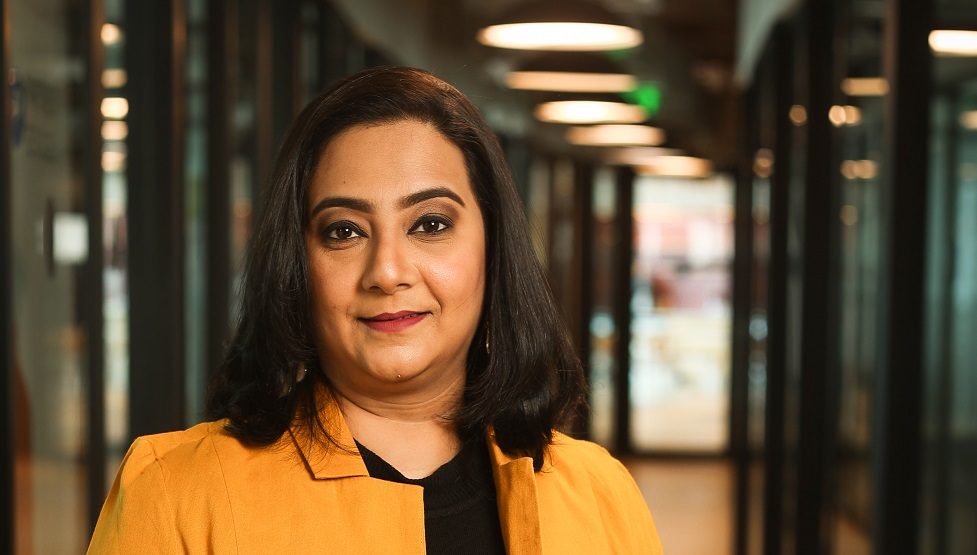Digital platforms are rife with instances of online bullying and harassment that disproportionally target women. It is a problem that the Singapore-headquartered Web3 social community platform coto is trying to address.
The platform, its co-founder Aparna Acharekar says, offers a safe digital space to women, along with monetisation opportunities. Coto claims to have amassed more than 100,000 subscribers in less than two months of its official launch.
Acharekar, a former over-the-top (OTT) services executive at Indian entertainment company Zee, says entrepreneurship has been a rewarding journey so far.
“I have learnt and unlearnt more in 18 months than I did in 22 years of my corporate career. As a woman contributing to creating a platform for women, I realised that I would have to keep aside my own biases to avoid assumptions and prejudices,” she said in an interview for DealStreetAsia’s recent report on the gender funding gap in Southeast Asia.
On facing biases as a female co-founder, Acharekar says she has not experienced any, but she has heard stories from others who have.
“…while I don’t think [investors] expect any less of business performance from female-founded businesses, there still is scepticism and doubt whether a woman founder will stick to her commitment. I have come across female founders who have been asked questions like, “Will your husband support you in this venture? Do you plan to take a maternity break now that you are just married? Will you be able to travel because you have children?” I don’t think anyone would ever ask a male founder these questions,” she said.
The DealStreetAsia report on the gender funding gap in SE Asia found that only 12.6% of all venture funding secured in 2022 went to startups with at least one female co-founder. Meanwhile, over 86% of the capital was bagged by all-male founding teams.
Edited excerpts of an interview with Acharekar:
What led you to become an entrepreneur?
I’ve always been passionate about creating something from scratch and bringing new ideas to life. I got an early opportunity in my career to move from print to digital and then be one of the first ones in India to be part of creating the OTT revolution. The pandemic changed much of my outlook on life and my goals. I aspired to have a more significant impact and an opportunity to create a small difference in my own way.
When my long-time mentor Tarun Katial spoke to me about his vision of a safe digital platform for women, the idea immediately resonated. I knew I would be passionate about building this and making it my mission. That’s what led me to become an entrepreneur.
How would you describe your entrepreneurship journey so far?
My journey of entrepreneurship has been enriching and challenging at the same time. I have learnt and unlearnt more in 18 months than I did in 22 years of my corporate career. As a woman contributing to creating a platform for women, I realised that I would have to keep aside my own biases to avoid assumptions and prejudices. Deep consumer immersions, taking cues from what early users of our platform have been indicating through their behaviour have taught me more than the courses I have done or the conferences I’ve attended.
I feel proud of the positive impact that we’re making by creating a safe space for women to express themselves and achieve financial independence. The journey has been that of self-discovery and personal growth, and I am grateful for every small and big, good or challenging experience.
What are some of your biggest challenges as a female founder?
I think entrepreneurship has to be ungendered, and we should, in our reference to professionals, stop adding gender. While personally, I have never really faced a challenge because of my gender, I’ve observed that women investors or analysts on the other side of the table bring more empathy and understanding when it comes to women-focused businesses. More women in investment and analyst roles will level the playing field for all founders.
Do you think that investors tend to have different expectations or standards for female founders versus male founders?
I believe the most important thing is to focus on building a strong and viable business model and showing investors the potential for growth and profitability. And while I don’t think they expect any less of business performance from female-founded businesses, there still is scepticism and doubt whether a woman founder will stick to her commitment. I have come across female founders who have been asked questions like, “Will your husband support you in this venture? Do you plan to take a maternity break now that you are just married? Will you be able to travel because you have children?” I don’t think anyone would ever ask a male founder these questions. Some women founders have shared that the quality of discussion investors had with them was poorer than what their male counterparts experienced. That they believed was discriminatory and doubtful of their abilities.
What are some of the potential reasons for the gender gap in venture funding, and how do you think these can be addressed?
The gender gap in venture funding can be attributed to several factors, including unconscious bias, lack of representation, and structural barriers.
To address this gap, we need more women representation in investments and, as decision-makers, encourage more women to pursue entrepreneurship and provide more support and resources for female founders.
In the current environment, when fundraising is expected to be more difficult to secure for most startups, could female founders find it tougher to raise capital?
Any founder, whether a male or a female, may face significant challenges in securing funding during these difficult times. However, it is also an opportunity to demonstrate our resilience, creativity, and problem-solving skills. We can weather the storm and emerge stronger with the right support and resources.
What advice would you give other female entrepreneurs?
Many of us either suffer the imposter syndrome or are always on a quest to be superwomen. My advice for every entrepreneur is to believe in themselves and their vision and build a strong support network around them. We must seek mentorship and resources and always be willing to learn and adapt. It can be a challenging journey, but it is also incredibly rewarding.
How can we work to change the culture and mindset within the venture capital industry to be more inclusive and supportive of female founders?
This can be done by actively seeking diverse talent, investing in them, providing mentorship and resources to underrepresented groups, and challenging biases and stereotypes.
In your opinion, what are some of the most important factors that investors should consider when evaluating a startup, regardless of the founder’s gender?
When evaluating a startup, investors should consider factors such as the market opportunity, the team’s strength, the idea’s scalability, and the potential for growth and profitability. Gender should not be a factor in the evaluation process, as it does not necessarily correlate with a startup’s potential for success.
How has being a female entrepreneur influenced your leadership style and approach to running a business?
I believe in collaboration, empathy, and inclusivity and strive to create a culture where everyone feels valued and supported. I also believe in setting high standards and holding my team accountable for achieving our goals.





